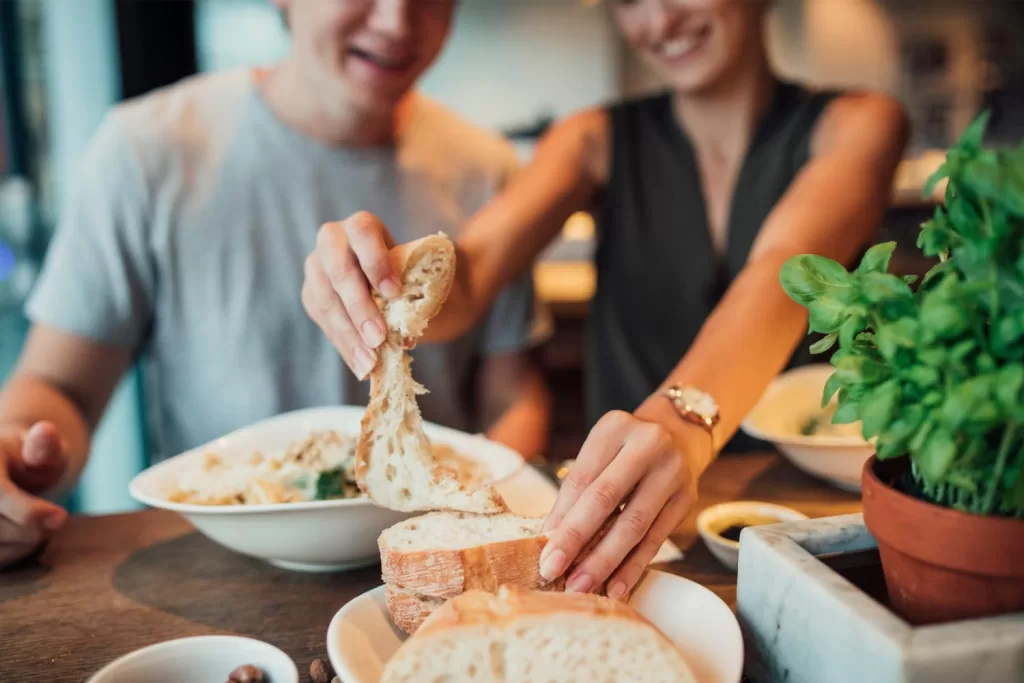What can you do to change your relationship with food?
The media and diet culture have ingrained several misconceptions in our minds that we often apply without realizing it. Concepts like categorizing foods as “bad” or “good,” constantly counting calories, labeling foods as “off-limits,” and following various diets can harm our relationship with food. Becoming overly fixated on food isn’t beneficial. A healthy relationship with food means having the freedom to eat what makes you feel good both physically and mentally, without restrictions or guilt. It’s all about embracing your body, being kind to yourself, and nourishing both your body and soul.
Acknowledging that your relationship with food needs healing is a big step on your recovery journey! It’s a wonderful accomplishment to choose to make positive changes. If you’re wondering how to start improving your relationship with food, here are some friendly tips to guide you.
Tips on How to heal your relationship with food
Identify Triggers
Start by paying attention to what triggers negative feelings such as anxiety, shame, or stress when it comes to food. Is it certain people you interact with, social media influences, or specific foods that lead to binge eating episodes? Taking note of these triggers and understanding how they affect you can be a compassionate step toward healing your relationship with food. Once identified, you can explore ways to minimize or address these triggers, whether it’s setting boundaries on social media or surrounding yourself with supportive people.
Stop Demonizing Foods
Every food is valuable, regardless of whether society labels it “good” or “bad.” They all provide the nutrients—carbohydrates, protein, and fats—that our bodies need to thrive. Beyond nourishment, food also brings us together, allowing us to enjoy cultural traditions and connect with others in meaningful ways.
Find Other Ways to Cope with Your Emotions
Turning to food as a way to manage emotions is a common and understandable reaction. While it’s okay to do so occasionally, relying solely on food during challenging times isn’t helpful. It’s crucial to have alternative coping strategies ready, such as going for a walk, engaging in enjoyable self-care practices, or addressing the root causes of your negative emotions
Let Go of Diet Culture
If you’re always participating in the latest diet or looking at what can get you the fastest results, it can be hard to truly listen to your body. In your journey to heal your relationship with food, the aim is to tune into your body’s signals of hunger and fullness. This can be tricky if you’re accustomed to diet culture, which often tells us to ignore these natural cues. Your body might signal hunger through stomach growls, fatigue, or low energy levels. Trust that your body knows what it needs and will communicate those needs to you!
Seek professional help
A dietitian can be your guide to healing your relationship with food. They’re experts in the field, equipped with tools to help you enjoy food without stress. With their support, you can work through triggers and past challenges with food, all at your own pace and in a way that feels right for you, ensuring that every step toward a healthier relationship with food is both empowering and comfortable.



